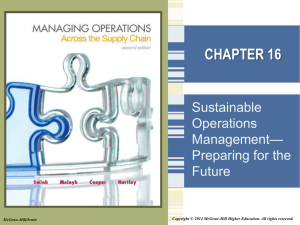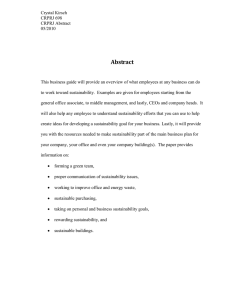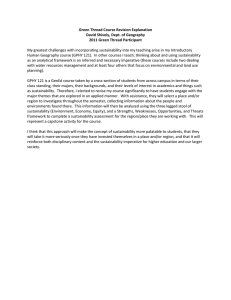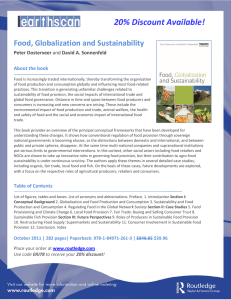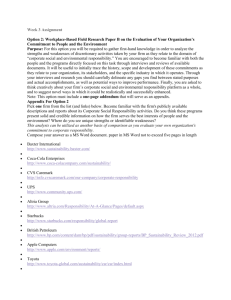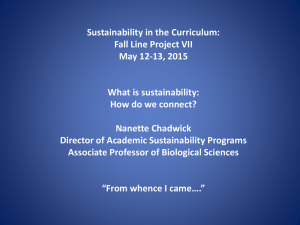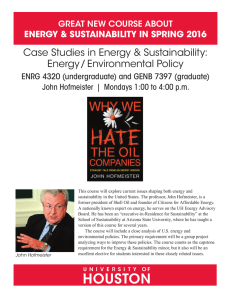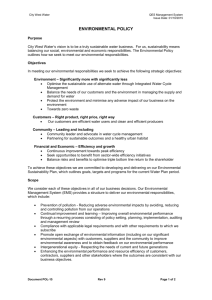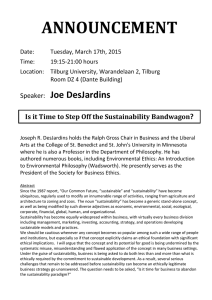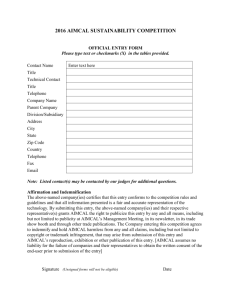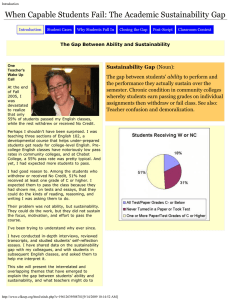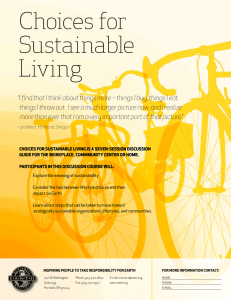Resource Management - Prof. Ranjan Kumar Bal
advertisement
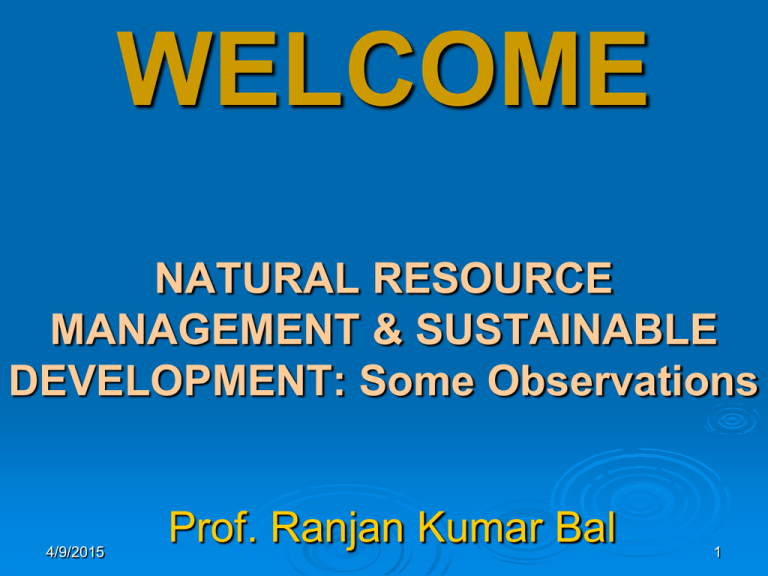
WELCOME NATURAL RESOURCE MANAGEMENT & SUSTAINABLE DEVELOPMENT: Some Observations 4/9/2015 Prof. Ranjan Kumar Bal 1 SUSTAINABLE DEVELOPMENT Meets the needs of present generation without compromising the ability of future generations Minimum Maximum environmental impact value addition for Customers/Society 4/9/2015 2 NATURAL RESOURCES MANAGEMENT Environmental Resources Management: Climate Change – Natural Hazards Air Resources Management Water Resources Management Wildlife Management Forestry Soil Conservation India is 7 times behind China. 4/9/2015 3 NATURAL RESOURCES MANAGEMENT – Cont. Efficient & Effective Deployment: Cost-Benefit Analysis Planning, Controlling & Managing to achieve 100% resource utilisation Match: Demand Vs. Supply INCLUSIVE GROWTH 4/9/2015 4 ST 21 CENTURY Trust -Transparency Gap Information provided Vs. Information needs of Stakeholders / Society. Trust-me Culture Tell-me Culture Show-me Culture Osama Bin Laden wanted to become a manager !!5 4/9/2015 Research Findings: KPMG study: On “Measuring Performance of the Organizations of the Future” “Over-reliance on summary financial performance measures (Viz. ROI) was hindering an organization’s abilities to create future economic value.” FINDING: More Natural Resources = Less Economic Development 4/9/2015 6 RESEARCH FINDINGS McKinsey & Co: 400 Firms “The environmental challenge is one of the central issues of the 21st century.” World Economic Forum: 650 Executives “Environment is the most important challenge affecting business.” 4/9/2015 7 Social Economic Triple Bottom Line Environmental 4/9/2015 8 TBL or Sustainability for measuring performance Single bottom line to Triple bottom line Shareholder-oriented accounting to Stakeholder-oriented accounting Framework 3 Ps: Profit, 4/9/2015 Planet & People 9 SOCIAL BOTTOM LINE Organisation’s impact on society Public health & Community Dev. Skill & Education Social justice & Human Rights Trust, Integrity & Teamwork Labour practices Product Responsibility 4/9/2015 10 ENVIRONMENTAL BOTTOM LINE Efficient use of natural resources Efficient environmental mgt. Renewable 4/9/2015 natural capital DISASTER MANAGERS 11 ECONOMIC BOTTOM LINE Economic profitability Employment generation Market creation Financial capital & Physical capital 4/9/2015 12 WHY SUSTAINABILITY ? of Environmentalism Climate Change & Natural Hazards Relationship with Communities Growth 4/9/2015 13 SUSTAINABLE ENTERPRISE Makes resource-efficient products Minimum environmental impact Maximum value to stakeholders Adding value to society. 4/9/2015 14 Sustainability :Challenges Management & maintenance of economic, natural, social capital Create “win-win” situation: Social & Environment friendly Climate Change – Natural Resources – Inclusive Growth 4/9/2015 15 CHANGE Change is the only constant in to-day’s world. “Vasudheiba Kutumbakam.” INNOVATIVE STRATEGY 4/9/2015 Awareness & Education 16 “Earth provides enough to satisfy everyone’s needs, but not everyman’s greed.” -GANDHIJI Self Discipline 4/9/2015 17 Writings on the Wall: “ACT NOW or GET READY TO BE A PART OF HISTORY.” THANK ‘U’ 4/9/2015 18




